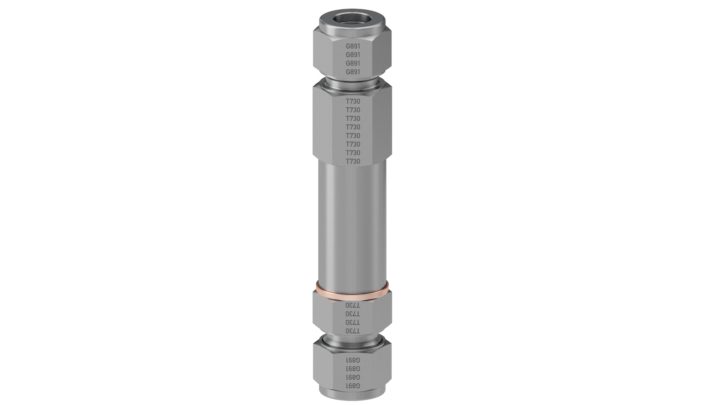
Parker’s two ferrule A-LOK connection technology provides leak-free performance in a wide variety of applications and offers customers superior advantage in safety, reliability, speed and ease of installation.
A-LOK fittings use an advanced two ferrule system for reliability and ease of assembly and disassembly with no special tooling required. The design ensures all make and remake motion is transmitted axially to the tubing with no radial movement to stress the tubing, ensuring its mechanical integrity is uncompromised.
A-LOK two ferrule fittings also benefit from Parker’s Suparcase technology, a proprietary chemical hardening process for the treatment of ASTM 316 stainless steel ferrules that imparts a unique set of physical characteristics that greatly enhances the corrosion resistance of the fitting.
Olga Krasilnikova, product manager – instrumentation products division Europe said: “Due to customer demand Parker has designed a stainless steel thermal relief valve with A-LOK connections, which completely eliminates the need for taper threads, PTFE tape and thread sealant saving the customer assembly time and ultimately cost.”
Now available in stainless steel with 12mm A-LOK connections, the Parker Bestobell thermal relief valve (TRV) is a compact cryogenic relief valve designed to prevent damage to piping and equipment caused by the expansion of liquefied gases by relieving the over-pressure in a piping system of fluid due to a rise in temperature.
When liquefied gases are trapped between two closed valves, a situation known as liquid lock, the reheating and consequent boiling can lead to a dangerous rise in pressure, the consequences of which can be catastrophic.
The Parker Bestobell TRV has been designed with this application specifically in mind using materials which are particularly suited to this purpose. One major benefit of this is that the valve will not stick in its seat even when left unused for long periods of time. The valve also reseats correctly after venting off the expanding fluid, preventing the waste of expensive cryogenic gases.
